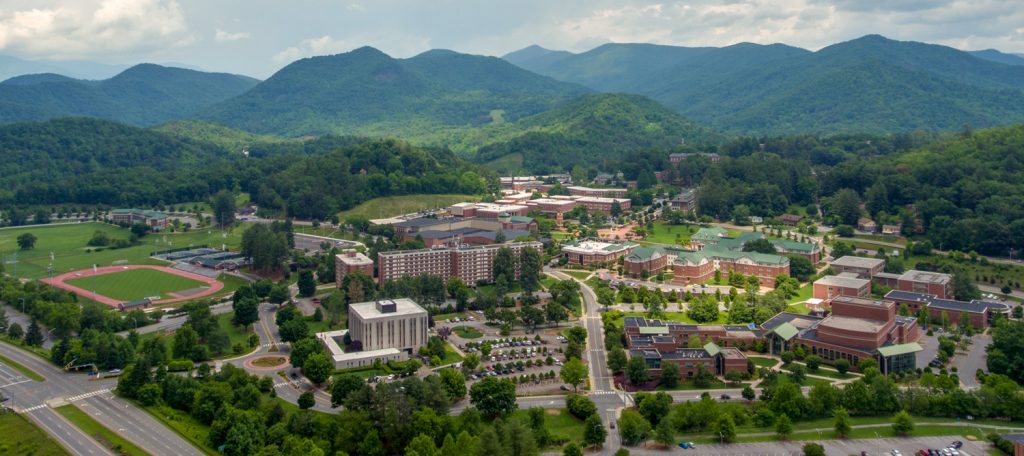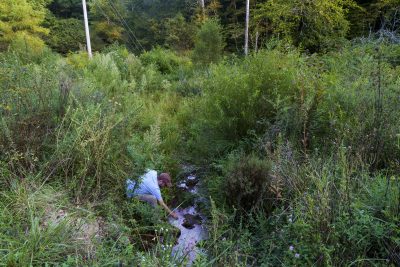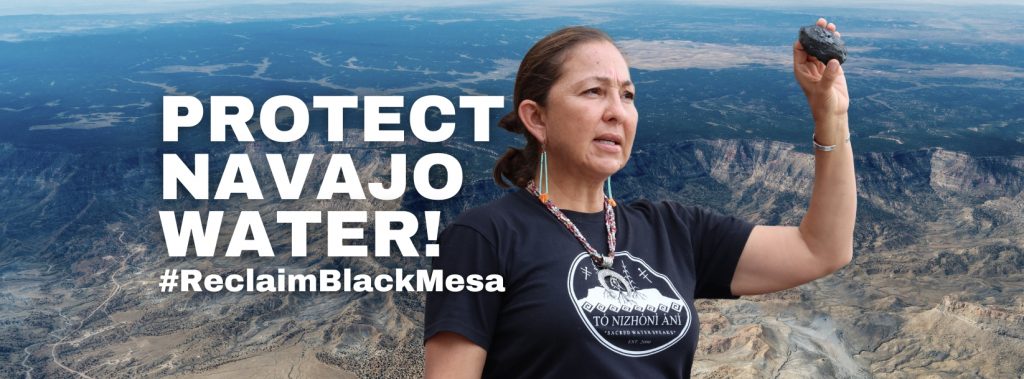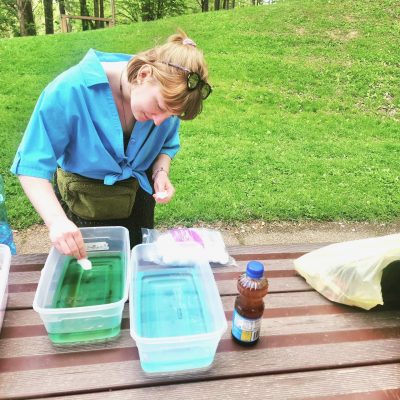
Western Carolina University’s main campus is located in Cullowhee, North Carolina. Photo courtesy Western Carolina University
For nearly 50 years, students, educators, activists and community leaders from across the Appalachian region have gathered each spring for the annual conference of the Appalachian Studies Association. Colloquially referred to as the App Studies Conference, the event features panel presentations on a variety of issues, skill-based workshops, a research project poster display, keynote speakers and field trips to areas of local significance in the host community.
This year, the conference will be held at Western Carolina University in Cullowhee, North Carolina, from March 7 to March 9. Along with a wide array of grassroots partners, Appalachian Voices will be there to learn, teach and have a good time!
If you can make it to the conference, come check out some of the sessions that Appalachian Voices will be participating in:
- Indigenous leadership confronting the coal industry at Black Mesa and Appalachia
- Cultural Organizing and Tourism in symbiosis and tension
- Easy and Accessible Air and Water Monitoring for Environmental Justice in Appalachia
- Fighting False Solutions — Offering Grounded Solutions for a Just Transition
- Pipeline Struggles: Lessons for National Organizing from the Appalachian Stop MVP and Stop Ridgeline Movements
Session descriptions along with preliminary dates and times are below, but room numbers are not yet available. For the final details and to attend, you’ll need to register for the conference.
Easy and Accessible Air and Water Monitoring for Environmental Justice in Appalachia

Presenter Willie Dodson tests mine runoff for contaminants near Kentucky’s Red River Gorge. Photo by Michael Swensen for Earthjustice
Trainer: Willie Dodson, Appalachian Voices
This workshop will provide a primer on the equipment, methods, web-maps and data-management tools that Appalachian Voices uses to document the impacts of coal mining and other industries on our air and water. The workshop will also briefly cover how App Voices uses this information to address these impacts.
Cultural Organizing and Tourism in symbiosis and tension
Friday March 8, 10:30 a.m. to 11:45 a.m.
Convenor and moderator: Willie Dodson, Appalachian Voices
Panelists:
Laura Blythe, Program Director, Cherokee Historical Association
Tyler Hughes, Director, The Crooked Road: Southwest Virginia’s Music Heritage Trail
Joshua Outsey, Community Organizer and Archivist, Appalshop
Venus Evans, Commissioner, Kentucky Native American Heritage Commission
In a region and in a world where economic exploitation, poverty, bigotry and apathy can tear apart rural and/ or minority communities, many organizers invest in cultural education, preservation and perpetuation projects in order to build strong, rooted and resilient communities. In many cases, these projects simultaneously develop destinations and resources within the region’s tourism economy, which can both uplift and complicate the building of local power and identity.
Individually, panelists will speak to projects centering Cherokee culture and customs, Native American life in Kentucky, outdoor recreation, connection with our natural world, the historic and ongoing role of African-American churches in mountain communities, and Appalachian old-time, country and bluegrass music traditions. Collectively, the panel will discuss the importance of balancing community well-being with the economic opportunities found in the cultural and eco-tourism economies.
Fighting False Solutions – Offering Grounded Solutions for a Just Transition
Friday March 8, 4 p.m. to 5:15 p.m. Presenter Dee Parker of Kentuckians For The Commonwealth. Photo courtesy of Kentuckians For The Commonwealth

Panelists:
Emma Kelly, Appalachian Voices
Wally Smith, University of Virginia at Wise // The Clinch Coalition
Dee Parker, Kentuckians for the Commonwealth // Alliance for Appalachia
Alex Cole, Sierra Club
Garrett Blaize, Southern Appalachian Mountain Stewards // Appalachian Community Fund
As communities in Appalachia have sought to transition away from a dependence on extraction and fossil fuels, we’ve seen a boom of proposed projects that claim to be clean, sustainable, community-supported and economically viable. Although many of these projects have been advertised using just transition language, this panel will explore whether these proposals are “false solutions” that do not support a true just transition for the region. The panel is made up entirely of regionally engaged activists and organizers with extensive experience in advocating for a true just transition. Participants will discuss several of these proposed projects, ranging from carbon removal infrastructure, funding for natural gas-to-hydrogen facilities, increased experimental nuclear energy development, the proliferation of forest-focused carbon offset projects and for-profit conservation models.

Presenter Nicole Horseherder, of Tó Nizhoní Aní. Graphic by Tó Nizhoní Aní
Indigenous leadership confronting the coal industry at Black Mesa and Appalachia
Saturday March 9, 4 p.m. to 5:15 p.m.
Convenor and moderator: Willie Dodson, Appalachian Voices
Panelists:
Nicole Horseherder, Executive Director, Tó Nizhoní Aní
Taysha Devaughan, Development Director, Alliance for Appalachia
Tiffany Pyetter, independent artist and activist associated with the Waymakers Collective
Black Mesa is a large upland area on Diné (Navajo) and Hopi lands in Northern Arizona. Sacred to Native peoples, Black Mesa was aggressively strip-mined by Peabody Coal from the 1960s until 2019, degrading the landscape and all but depleting the Navajo Aquifer that Diné and Hopi communities depend on. Black Mountain stretches along the border of Virginia and Kentucky. Though notable grassroots victories have preserved large swaths of the mountain, Black Mountain has also been strip-mined for coal over many decades, with disastrous effects on the land, water and nearby communities.
The panelists will speak about community resistance to surface mining at Black Mesa and Appalachia, the role of art in envisioning communities post-coal, and the practice of mutual aid in community organizing and outreach.
Pipeline Struggles: Lessons for National Organizing from the Appalachian Stop MVP and Stop Ridgeline Movements
Saturday March 9, 9 a.m. to 10:15 a.m.
Convener: Gabe Schwartzman, University of Tennessee
Moderator: Emily Satterwhite, Virginia Tech

Panelist Moss Keith of SAGE TN participating in water quality workshop along proposed path of Ridgeline Pipeline Expansion. Photo by Erin Walker
Jessica Sims, Appalachian Voices
Gabi Lichtenstein, Appalachian Voices
Denali Nalamalapu, Protect Our Water Heritage Rights
Erin Walker, Safe, Affordable, Good Energy for Tennessee
Moss Keith, Safe, Affordable, Good Energy for Tennessee
Appalachia has become a flashpoint in the national movement to halt the construction of natural gas pipelines championed by state and federal regulators and politicians. Mobilizations to stop the Mountain Valley Pipeline that would cross West Virginia and Virginia have been underway for nine years. More recently, communities in middle Tennessee have mobilized to stop the construction of Enbridge’s Ridgeline pipeline, organizing as the group Safe, Affordable, Good Energy for Tennessee (SAGE TN) in 2022. In this session, organizers and community members will share lessons learned and will illuminate the connections between the pipeline fights and struggles for abolition and self-determination in the face of expanded corporate control regionally and nationally.
Gabi Lichtenstein is our Tennessee Energy Democracy Field Coordinator, Emma Kelly is our New Economy Field Coordinator, Willie Dodson is our Central Appalachian Field Coordinator and Jessica Sims is our Virginia Field Coordinator.



Leave a Reply